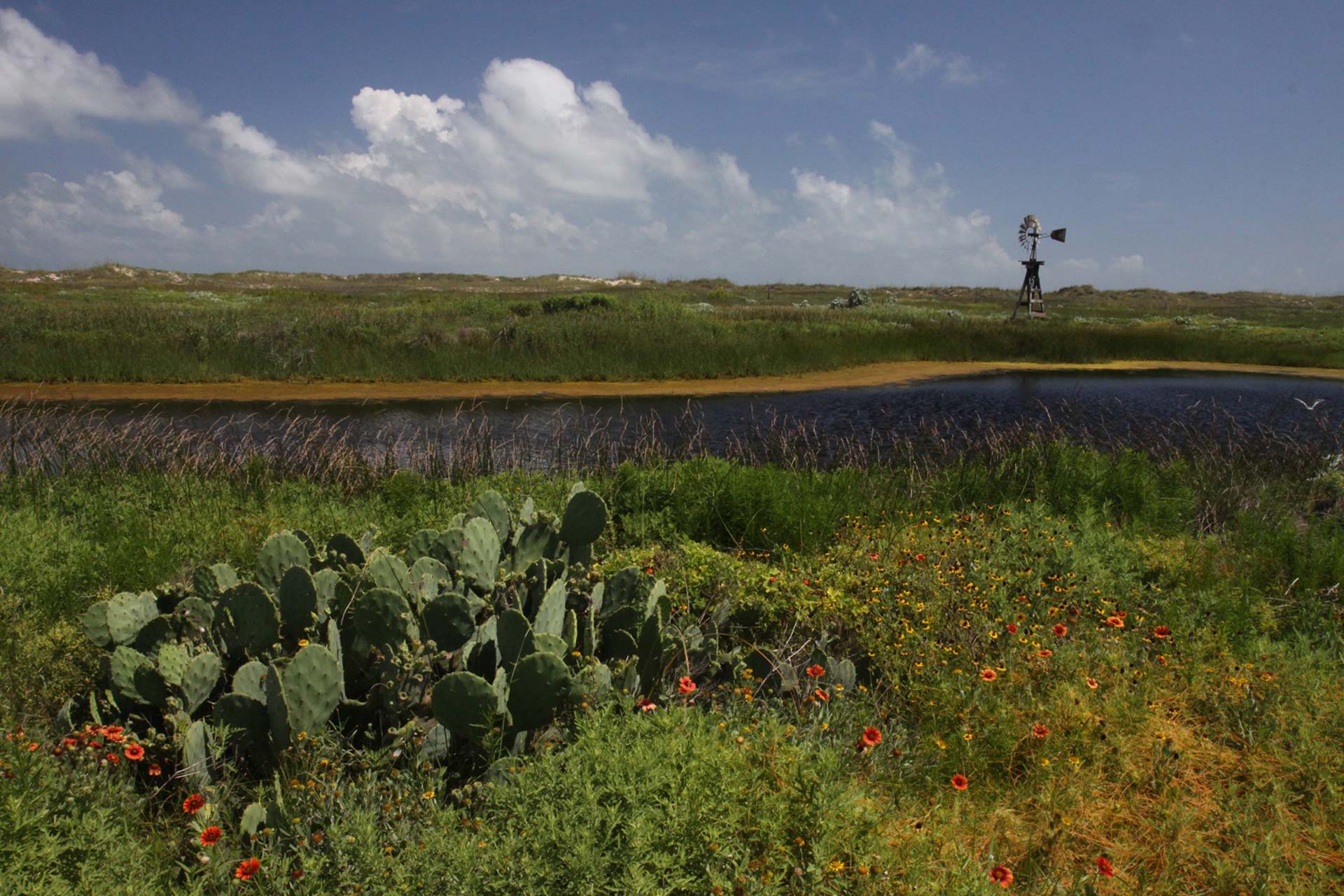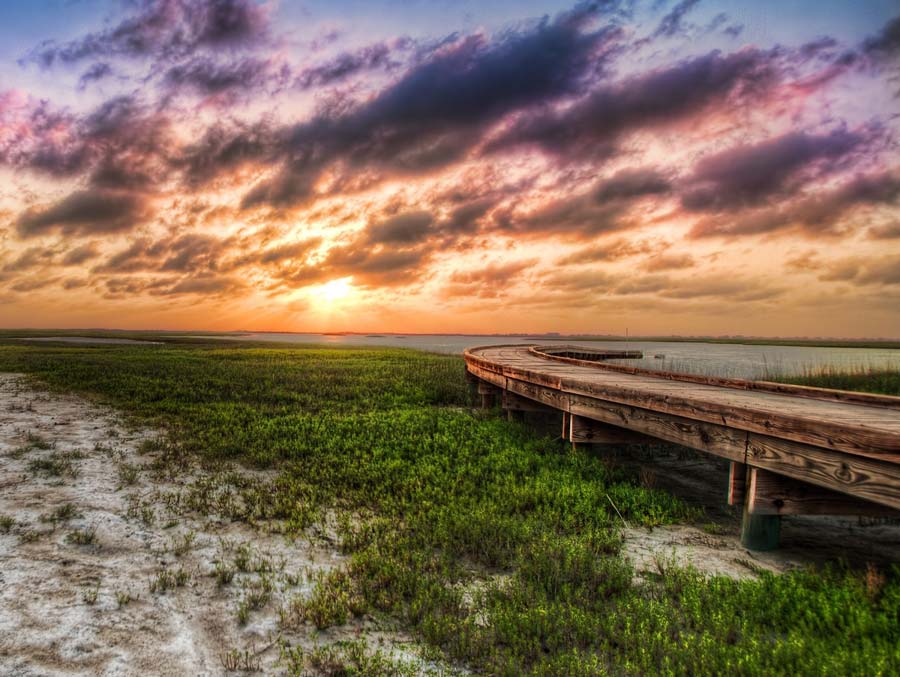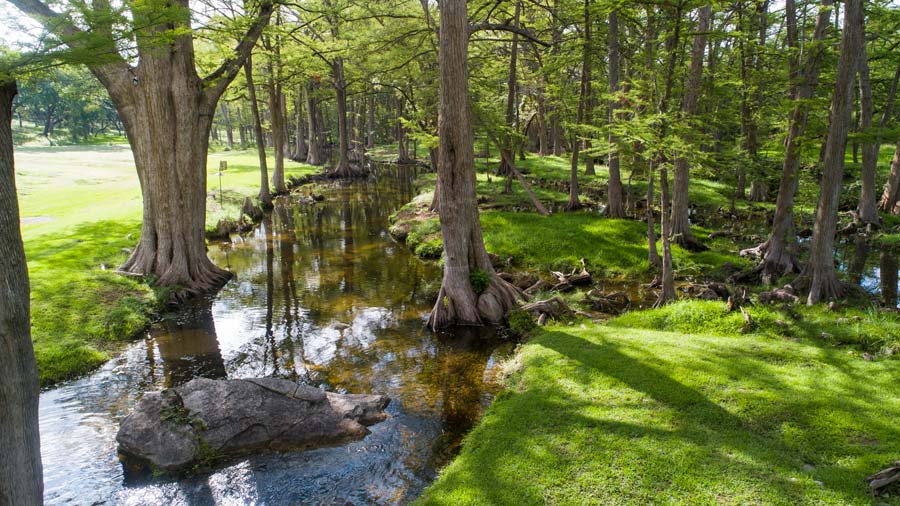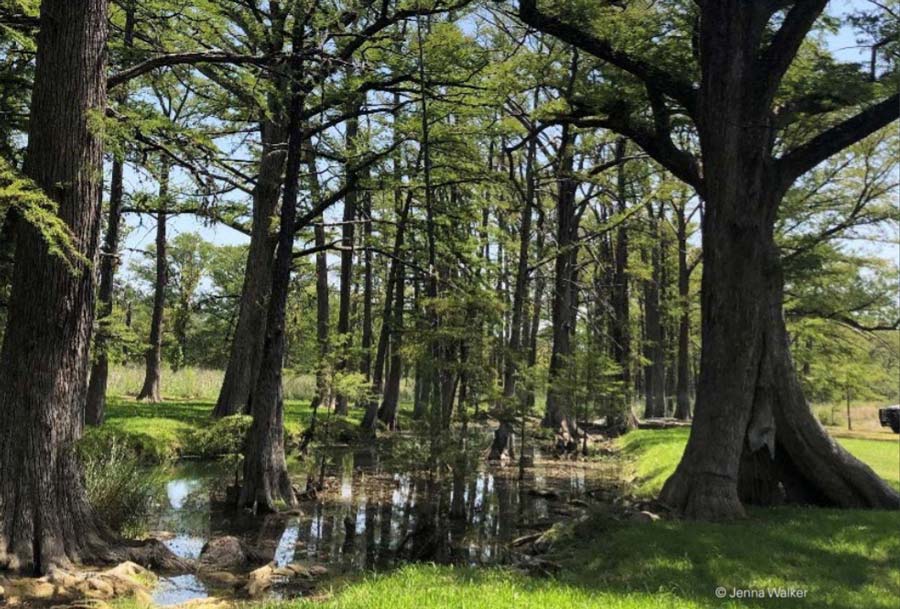Featured Projects

Matagorda Wetlands
The 934-acre Matagorda Wetlands project spans one of the largest, intact coastal ecosystems on the Matagorda Bay Peninsula. The wetlands’ expansive barrier grasslands, dunes, and tidal marshes provide critical habitat for a spectacular array of wildlife, including resident and migratory waterfowl, shorebirds, and waterbirds, and other wetland wildlife. Like so many of the Texas Gulf Coast’s wetlands, encroaching urban and residential development has imperiled the rich diversity of Matagorda Wetlands in recent years.
The permanent conservation of the Matagorda Wetlands protects the wetlands from future development, and ensures this coastal haven will remain intact forever. It will also allow for continued access for environmental education and outdoor recreation as part of the 1,333- acre Matagorda Bay Nature Park. The Texas coast is unique, and the conservation of these wetlands, where the Colorado River empties into the Gulf of Mexico, provides a tremendous opportunity to protect a diverse and productive habitat that will benefit all Texans.


Cypress Creek Flow Study
Blanco and Travis Counties
Cypress Creek, a natural jewel and significant tributary of the Pedernales River before it meets Lake Travis, is at a crossroads. Water demands in the region are expected to increase by 30% over the next 50 years. Rapid growth spreading west from Austin, extended droughts, and land fragmentation of large ranches into smaller tracts could adversely affect the creek’s flow patterns and long-term health.
The Meadows Center for Water and the Environment at Texas State University teamed up with Colorado River Land Trust to begin answering this question. The purpose was to better understand the creeks’ natural systems and the connections between surface and groundwater.
What will the future hold for this remarkable Hill Country stream?
The report was recently released, and Colorado River Land Trust will utilize the findings and data to partner with landowners and raise awareness about the importance of conserving our land and water resources in the Cypress Creek watershed.


